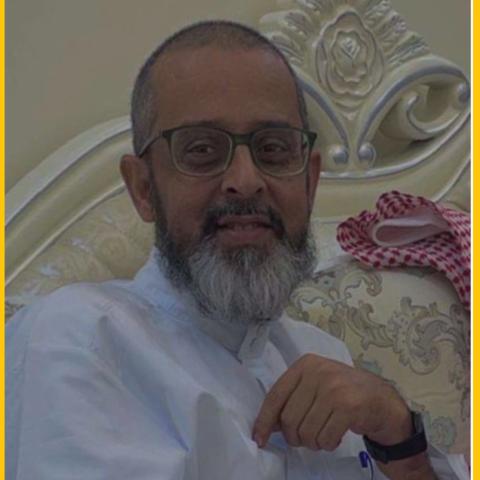
Several United Nations (UN) human rights experts have urged Saudi Arabia to immediately revoke the death penalty handed down to Mohammed Al Ghamdi, a retired teacher, for his tweets and activism on YouTube. This was expressed in a statement issued by the Special Rapporteur on extrajudicial, summary or arbitrary executions, the Special Rapporteur on the promotion and protection of the right to freedom of opinion and expression, and the Working Group on Arbitrary Detention.
The statement stressed that the repression of freedom of expression in Saudi Arabia continues to escalate, adding that the mere expression of critical opinions on the Internet cannot reach the level specified in international law for the imposition of the death penalty. According to UN independent experts, these "“Under no circumstances do the alleged crimes constitute the ‘most serious’ crimes,” for which the death penalty can be applied.
The detainee, Mohammed Al Ghamdi, brother of opposition politician Saeed bin Nasser Al-Ghamdi, who resides in London, was arrested by Saudi authorities on 11 June 2022. He was charged with criminal offenses for opinions he expressed on social media by the Specialized Criminal Court which sentenced him to death on 10 July 2023.
UN concern
While thousands of prisoners of conscience languish in Saudi prisons due to unjust sentences – some of them sentenced to more than thirty years in prison – the latest statement from independent UN experts highlights their concern with regard to Saudi sanctions. Imposed against online expression, these sanctions include the death penalty or imprisonment for several decades on the basis of the anti-terrorism law.
The UN independent experts expressed that these sanctions were completely incompatible with international law and human rights standards. The experts stressed that freedom of expression and opinion is critical to achieve a free and democratic society and sustainable development.
Alkarama’s action
Alkarama pays close attention to the issues of prisoners of conscience in Saudi Arabia. Over the past years it has submitted complaints to the UN Special Procedures on Human Rights, as well as shadow reports to the Human Rights Council, the Committee against Torture and other UN relevant bodies.
On 17 July 2023, Alkarama submitted its alternative report in the context of Saudi Arabia's Universal Periodic Review (UPR) scheduled for 2024. On this occasion, Saudi Arabia will be subjected for the fourth time to the examination of the Human Rights Council.
In its report, Alkarama focused on violations of freedom of expression and association, the systematic practice of arbitrary detention and the use of torture and ill-treatment, noting that national legislation in Saudi Arabia criminalizes peaceful dissent.
Despite numerous recommendations made in the previous UPR to lift restrictions on freedom of expression and association and to put an end to persecution and reprisals, Saudi Arabia arrested many peaceful activists and dissidents solely for peacefully exercising their rights to freedom of expression, assembly and association. Furthermore, the Saudi authorities resort to retaliation and intimidation of anyone who cooperates with the UN on human rights issues, which prompted Alkarama to submit successive contributions in this regard, including the latest date of April 13, 2023.
Indeed, Alkarama submitted a report to the UN Secretary-General on reprisals in which it highlighted the case of Safar Al-Hawali, a typical case which reflects the reprisals of the authorities against people who turn to the UN to request its intervention in cases of violation of their rights.
